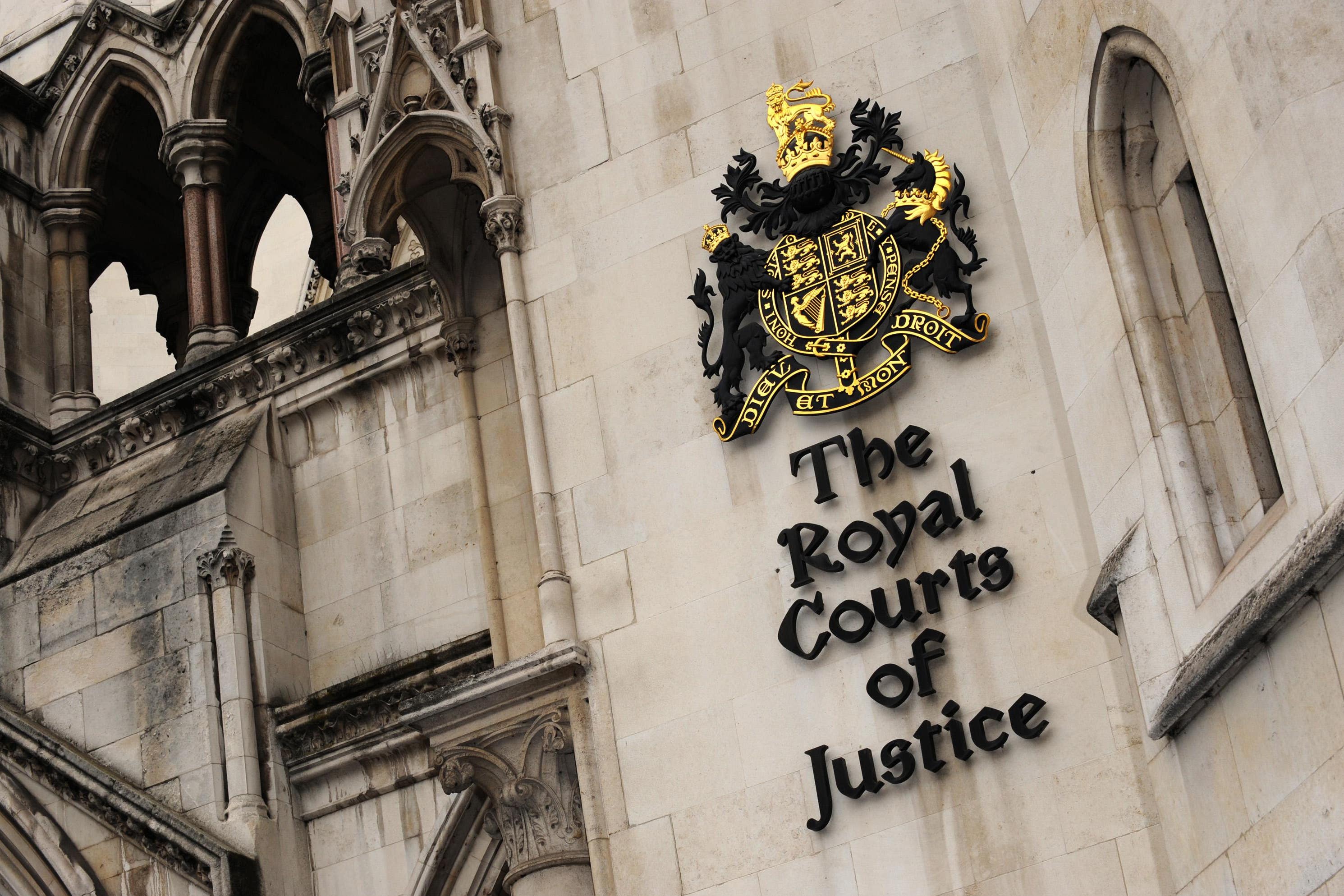Mother wins High Court challenge over refusal of legal aid for custody battle
She brought a case against the Ministry of Justice and Legal Aid Agency challenging their ‘unjust’ approach to legal aid rules.

A mother claiming to be a survivor of domestic abuse has won a High Court challenge against the Government after being refused legal aid funding for a custody battle over her child.
The woman, who cannot be identified, was denied financial support for the dispute with her ex-partner because the child was deemed not to be a member of her household.
She brought a case against the Ministry of Justice (MoJ) and Legal Aid Agency (LAA) challenging their “unjust” approach to legal aid rules.
On Wednesday, a judge ruled in her favour, quashing the funding decision and part of government guidance limiting a dependent child to being a member of just one household
The LAA – an executive agency of the MoJ – can help people on lower income meet legal costs depending on an assessment of their finances.
The woman’s lawyers previously told the court in London that she faced th prospect of having to sell her home in order to fund a bid to secure full custody of her child.
They claimed her former partner was abusive and had breached a shared custody arrangement over the child.
The LAA concluded that as her child could not be classified as her dependent it would not deduct housing costs from its assessment of her disposable income, taking her above the £733 per month threshold for legal aid eligibility.
But Chris Buttler KC, for the woman, said in written arguments that “the only reason” the child was not living with her more of the time was due to the ex-partner’s alleged custody arrangement breach, which she needed legal aid to enforce.
He claimed the effect of the LAA’s approach to rules “would reward the abuser and penalise the victim – rendering her unable to obtain legal representation to help remedy the abuse”.
Mr Buttler said the Government, which opposed the woman’s claim, had “misread” the rules and that the LAA is “free to have regard to all relevant facts when deciding whether a ‘dependent child is a member of the legal aid applicant’s household’”.
He added that the LAA had “wrongly” treated the women’s claim to need legal aid for her custody battle as “irrelevant considerations”.
Malcolm Birdling, for the LAA, said in written arguments that its decision was “unimpeachable”.
He said it did not agree that the women could not afford to pay for legal representation and that it was not “appropriate” for it to make determinations about her allegations over custody arrangements.
Mr Birdling said the evidence before the LAA indicated that “legal aid was not needed to enforce the custody agreement”.
Shane Sibbel, for the MoJ, said in written arguments that it had “a natural and long-established way of approaching the ‘household’ concept” and that other regulations could be used to take into account childcare costs.
In his ruling, Mr Justice Andrew Baker said that “to insist that a child can only ever be a member of one household is to misread means regulation” and was “wrong in law”.
He said that a child is a member of a parent’s household if “quantitatively and qualitatively” they were identified as one of its occupants.
“This is not incapable of being true simultaneously for the households for both of a child’s separated parents,” he said, adding that this was subject to the circumstances of individual cases.
He rejected the MoJ’s argument that the women’s case would “give rise to unjustified over provision of legal aid”.
The judge added a “flawed” approach was taken to the woman’s explanation as to why she needed legal aid.
“This is a case in which an obvious material factor has been disregarded or treated as of no weight in circumstances where it ought to have been properly considered,” he said.
The judge said that a fresh decision would be needed over the women’s legal aid application and that the Government should reconsider its guidance.
The women’s solicitor, Daniel Rourke from the Public Law Project (PLP), said after the ruling: “Legal aid is an essential pillar of our justice system and should be accessible to those who need it most.
“The impact of this judgment is not limited to family law and should lead to other people who share care of a dependent being able to access legal aid more easily.”
In a statement shared by the PLP, the “delighted” woman said: “This ruling should now mean that people do have the possibility of obtaining legal aid if they are put in an impossible situation, as I was and, therefore, also the possibility of getting the support they need to fight for justice for themselves and their child”.
A spokesperson for the MoJ said: “We have noted this ruling and are carefully considering our next steps.”
